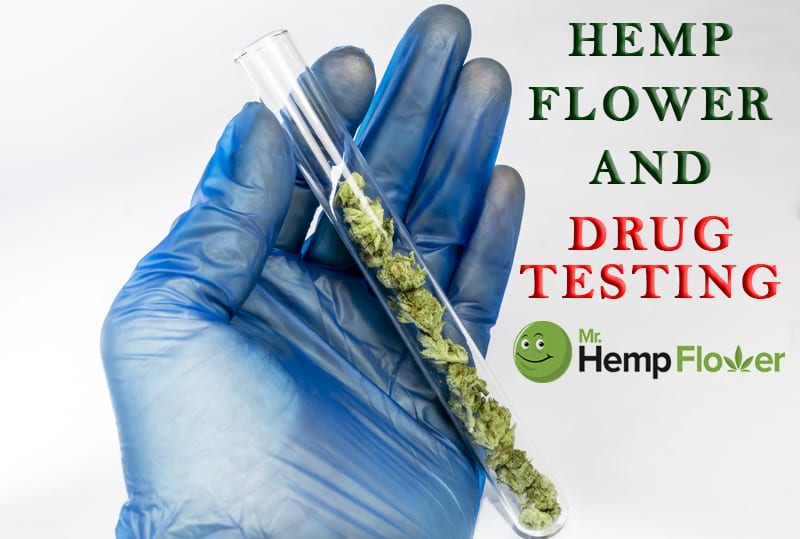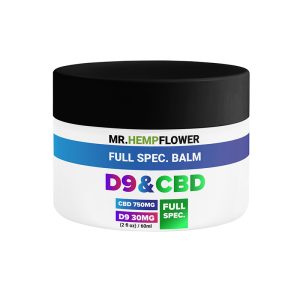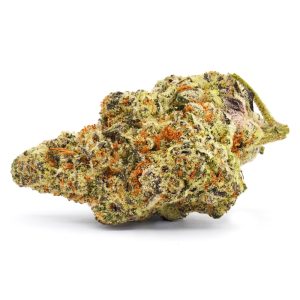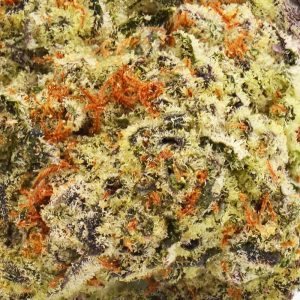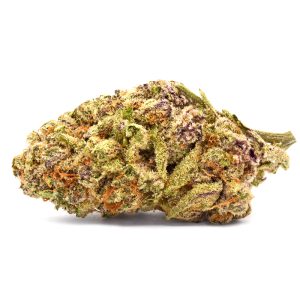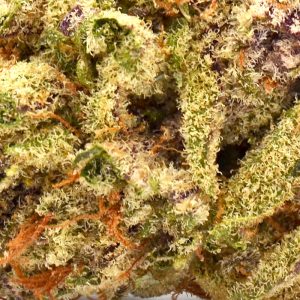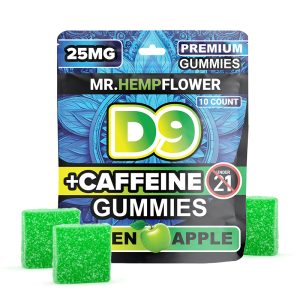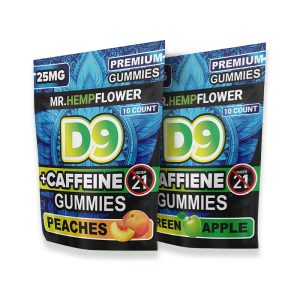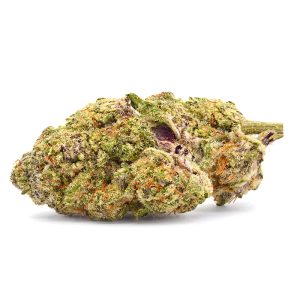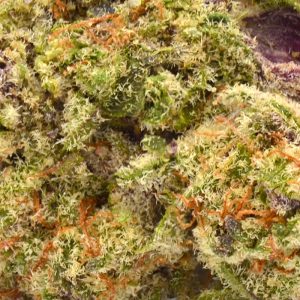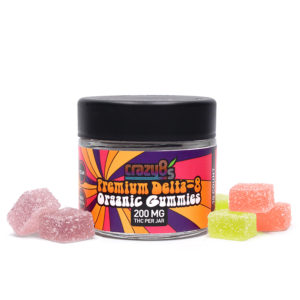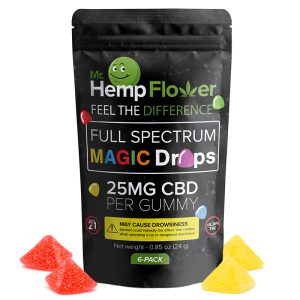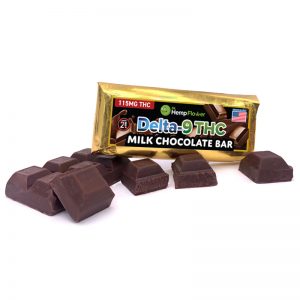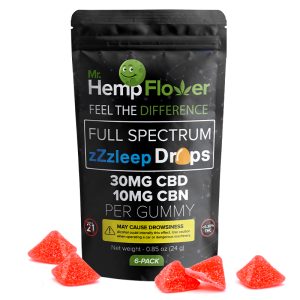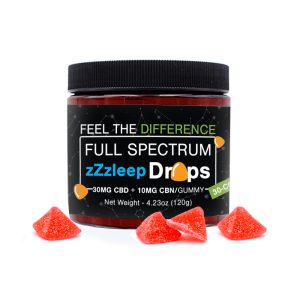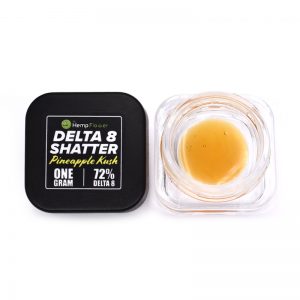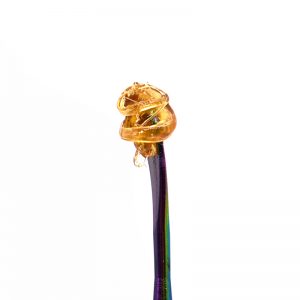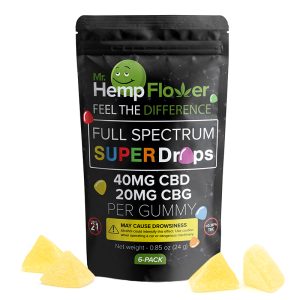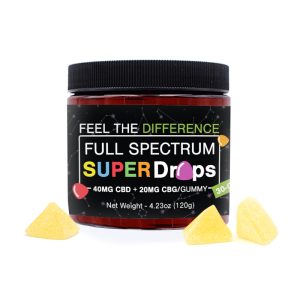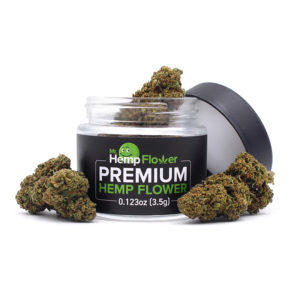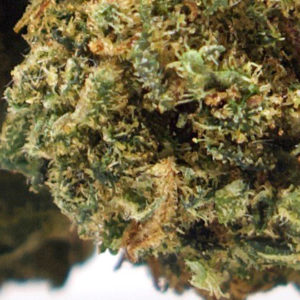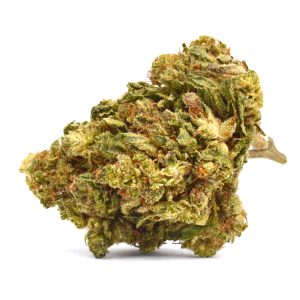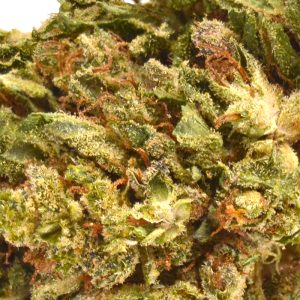CBD flower contains low THC levels that won’t get you high, but will they appear on a drug test?
Urine tests are the most common method of screening for consumption of substances at the workplace.
CBD hemp flower naturally contains trace amounts of THC, but does regular use cause a drug test to pop positive? This article answers all your questions about drug testing and CBD flower.
Last Update: July 5, 2023
Article Summary
- CBD flower shouldn’t show up on a drug test, but although very rare, a possibility exists.
- While low in THC (under 0.3%), frequent use of CBD flower can accumulate in fat cells and potentially result in a positive urine drug test.
- Urine tests are the most commonly employed method for workplace drug screening, with a detection threshold of 50 ng/ml for THC.
- A false positive for THC due to CBD is rare but could occur due to cross-contamination during manufacturing or product mislabeling.
- While CBD flower stays in the system for about 2-5 days after a single use, it may linger for a few weeks in frequent users. After acute and chronic oral administration, its half-life is 1-2 days and 2-5 days, respectively, and 1-2 days post inhalation.
- In frequent users, THC can be detected in urine 15 to 30 days after last use.
- Although CBD won’t cause a failed drug test, full spectrum CBD products can contain trace amounts of THC.
Does Smoking CBD Flower Cause a Failed Drug Test?
It’s unlikely for CBD flower to show up on a drug test, but it’s possible.
CBD flower is rich in cannabidiol (CBD), the non-intoxicating hemp cannabinoid. But, it does contain trace amounts of THC (less than 0.3%), which can be problematic for drug testing.
The average urine drug test looks for the presence of THC and THC metabolites. This means that CBD doesn’t show up on a drug test because most tests are not designed to detect this compound.
However, CBD flower is a full spectrum product with low levels of THC.
So, in regular users who smoke a lot of CBD flower, THC could accumulate in the fat cells. This could lead to a positive urine test if the accumulated THC concentration exceeds the test’s threshold.
Still, CBD flower contains low levels of THC, which shouldn’t show up on a drug test, but there’s a slight chance of it happening with regular use.
Drug tests with a low threshold have a higher chance of detecting THC. A urine test is most commonly used at the workplace due to convenience and has a low detection threshold of 50 ng/ml.
Because of this, some people go for THC-free hemp products, such as broad spectrum and isolates. While there’s no THC-free strain of CBD flower, you can find CBD flowers with low amounts of THC here.
Can THC in CBD Hemp Flower Cause a Positive Drug Test?
It’s unlikely, but yes, it’s possible for THC in CBD flower to show up on a drug test.
As mentioned earlier, even though it’s present in CBD flower in trace amounts, regular use of THC can accumulate in the body and result in a positive drug test.
Drug tests look for THC metabolites, and the metabolites can be stored in fat cells in the body. The amount of metabolites accumulated depends on the person’s metabolism, frequency of use, biological sex, and other factors.
To be on the safe side, avoid frequent use of CBD flower if you get tested at the workplace. Or, if you need to take this risk, find strains with less than 0.2% THC. It’s important to source your CBD flower from reputable companies, like Mr. Hemp Flower, that test their products and present the information accurately.
THC Levels and Drug Testing
What level of THC leads to a positive result on a drug test?
It’s difficult to know how much THC your fat cells can accumulate from use of low-THC products like CBD flower. Whether or not drug tests detect THC depends on the test’s cutoff level that would give a positive result.
Standard urine tests can detect THC at 50 ng/ml, which indicates the concentration of THC in your urine.
The amount of THC metabolites in your urine doesn’t reflect the actual amount of THC you’ve consumed.
If the test result comes out negative, that means the THC metabolites are present in a concentration below the test’s cutoff level. So, having THC present in your urine doesn’t mean that the drug test will be positive.
Will CBD Fail A Drug Test for Cannabis?
Cannabidiol (CBD) itself will not cause you to fail a drug test for cannabis.
Drug tests for cannabis primarily aim to detect THC, the cannabinoid responsible for the ‘high’ in marijuana, not CBD.
However, it’s important to note that some CBD products might contain trace amounts of THC, especially if they’re derived from marijuana rather than hemp or aren’t adequately purified.
How Long Does CBD Flower Stay in Your System?
CBD flower is a full spectrum product that contains different levels of CBD and THC.
Cannabidiol (CBD) typically lasts in your system for about 2 to 5 days after a single use. In more frequent users, CBD can linger for a few weeks.
The half-life of cannabidiol taken orally is 1-2 days after acute administration and 2-5 days after chronic administration. Post inhalation, it takes around 1 to 2 days for CBD to clear up [1, 2].
The half-life of a drug is the amount of time it takes for the active substance in your body to be eliminated by half.
Inhaled CBD flower, whether smoked or vaped, provides immediate effects but also leaves the body more swiftly. This is due to the direct absorption into the bloodstream, bypassing the digestive system.
How Long Will THC Stay In Your System?
The length of time THC stays in your system can depend on several factors, such as frequency of use, metabolism, dosage, and body fat percentage.
On average, THC stays in your system for up to 15 days after last use.
Daily users who take large amounts of THC may test positive for the substance even 30 days after last consumption.
Here’s the skinny on THC and most common drug tests:
- Urine test: THC metabolites can be detected in the urine for about 3 to 30 days after last use for frequent users, and for occasional users, it’s typically around a week.
- Blood test: THC itself can be detected in the blood for a few hours up to a day after use. However, its metabolites can be detected for up to several days.
- Saliva test: THC can be found in oral fluids for about 24 to 72 hours after use. Chronic users might have a longer detection window.
- Hair test: This test can detect THC for up to 90 days. However, it doesn’t usually detect occasional marijuana use.
Low THC levels in full spectrum CBD products shouldn’t cause a failed screening, but it’s possible in some people.
How Do Cannabis Drug Tests Work?
The urine test is an immunoassay involving antibodies designed to attach to specific drugs, in this case, THC. If the antibodies successfully detect THC, the test registers as positive.
Despite being affordable and convenient, urine tests also have limitations, such as susceptibility to false positives or negatives. There’s also the inability to provide information on the level of impairment or exposure to THC.
Mass spectrometry is an alternative, more precise testing method often used for forensic or workplace drug testing. As the ‘gold standard’ of testing, it identifies compounds based on their unique chemical structures.
But, the mass spectrometry test is:
- More expensive
- More time-consuming
- Requires highly trained staff
- Results may not be available for days or even weeks
Despite these factors, its higher degree of accuracy makes it a commonly used confirmatory measure following an initial positive result on an immunoassay.
The detection window for THC varies widely, ranging from three days after a single use to over 30 days in the case of heavy users. This wide range is due to the following:
- THC’s fat-soluble properties, causing it to be stored in body fat and gradually released into the bloodstream over time.
- Chronic use leading to its accumulation in fatty tissues, extending its presence in the system.
Does CBD Show Up on a Drug Tests as a False Positive
Technically, CBD could trigger a false positive result, but that’s very rare.
Factors like cross-contamination and product mislabeling are the most common reasons CBD could result in a false positive for THC.
Cross Contamination
During the CBD manufacturing process, products can be contaminated from other products and processes even if minuscule amounts of THC are present.
This is called “cross-contamination” and is possible when manufacturers make products containing a combination of CBD and THC.
Product Mislabeling
Inconsistent regulation of CBD products worldwide has severely impacted third-party testing of cannabinoid products.
A 2017 Dutch study revealed the presence of THC in 18 out of 84 CBD-only products tested. This indicates that product mislabeling is common in the industry, though more research is needed to confirm in the USA [3].
CBD Turning into THC?
In an acidic environment, CBD can transform into THC, studies show [4].
But, a 2017 review concluded that this transformation is unlikely to happen in the actual conditions of the human stomach. The same review noted that no reliable clinical studies reported CBD side effects similar to those associated with THC, so this is unlikely to happen in reality [5].
Full Spectrum vs. Broad Spectrum vs. CBD Isolate
Navigating the world of CBD can be like decoding a new language, especially when terms like ‘full-spectrum’, ‘broad-spectrum’, and ‘CBD isolate’ get thrown around.
Here’s what those terms mean:
- Full-spectrum CBD contains all the natural cannabinoids and terpenes the plant has to offer, including THC.
- Broad-spectrum CBD mirrors full-spectrum CBD, but it’s been specially processed to remove all traces of THC. Think of it as the ‘non-alcoholic beer’ of cannabis products.
- CBD isolate, on the other hand, is the essence of simplicity — it’s CBD in its most unadulterated form, with no other cannabinoids in sight.
If you opt for full-spectrum CBD, make sure you’re choosing products derived from the hemp plant. By law, these can only contain a maximum of 0.3% THC, keeping your CBD experience focused on wellness, not a psychoactive detour.
How to Minimize the Risk of Failing a Drug Test With CBD
We can’t absolutely guarantee that CBD hemp flower won’t pop up positive on a drug test, there are steps you can take to reduce this risk.
- Firstly, selecting high-quality CBD products from trustworthy suppliers is crucial. These providers should be able to offer precise information about THC content, ideally backed up by third-party testing and a certificate of analysis (CoA).
- If you’re especially concerned about drug tests, consider THC-free CBD products, made with pure CBD isolate, void of other cannabinoids or THC.
With less frequent use and thoughtful choice of products, CBD hemp flower can be a beneficial component of a healthy lifestyle without the constant worry of failing a drug test.
So, Will I Fail a Drug Test From CBD Hemp Flower?
According to the paper Evaluating the Impact of Hemp Food Consumption on Workplace Drug Tests, it depends on the amount of hemp consumed and the levels of THC in the hemp plant.
In the paper, fifteen subjects were given oils that contained THC in the range from 0.09 to 0.6mg over ten days.
The study indicated that the people who ingested THC in the 0.45mg doses screened negative at the 50ng/ml detection threshold.
On the other hand, the participants who ingested 0.6mg of THC screened positive.
Is Hemp Flower Legal?
Yes, hemp flower is legal at the federal level under the Farm Bill of 2018.
CBD hemp flower that’s derived from the hemp plant and contains less than 0.3% THC by dry weight is legal in the U.S. With that said, some states have restricted or banned the sale and distribution of smokable hemp products, such as pre-rolls, cigarettes, and similar.
Finding CBD flower of superior quality is still a challenge despite legalization. If you want to buy premium CBD flower rich in cannabinoids and terpenes, check out our product selection.
FAQ on Drug Testing and CBD Hemp Flower
Can hemp flowers make you fail a drug test?
It depends on how much you consume and the levels of THC in your hemp flower. So, it is important to manage your dosage and get your hemp flower from a reputable source that you can trust.
How long is CBD detectable in urine?
It is assumed that CBD stays in the urine for a couple of weeks after last use.
How long does CBD stay in your system?
There is not an exact timeframe of how long CBD stays in your system, but it is assumed that CBD leaves the blood after a week of last use. In urine, CBD is assumed to stay longer, up to a couple of weeks.
Is hemp a drug?
Technically, hemp is considered a drug, because it affects functions of the body. However, hemp is a non-intoxicating variety of cannabis that has a potent healing effect but doesn’t produce the high of illicit drugs.
What are the benefits of hemp?
Hemp is an incredibly nutritious plant that may help people with chronic pain, anxiety, depression, sleep problems, and may reduce the risk of heart disease and benefit skin disorders
Why hemp is banned?
Hemp is no longer banned in the US since the signing of the 2018 Farm Bill. The plant was banned with The Marijuana Tax Act of 1937 because of the similarities with its “evil” twin marijuana.
Can smoking hemp get you high?
No, smoking hemp can’t get you high. If taken in very large amounts, hemp is more likely to give you a migraine than get you high.
Is buying and selling hemp illegal in the US?
Many hemp producers sell hemp legally under the protection of the 2018 Farm Bill. Each state passes its own hemp production regulations, but according to the Bill, hemp is a legal plant.
Will Smoking Hemp Flowers Make You Fail A Drug Test?
It is unlikely, but it can, especially if you smoke very large quantities and don’t regulate the dosage properly. That may lead to the THC to be detectable over the 50ng/ml limit.
Is CBD a drug?
Technically, yes, CBD is a drug. Most cannabinoids are considered drugs because they have a physiological effect when introduced into the body.
Does CBD show up on a mouth swab drug test?
No, CBD shouldn’t show up on any drug test because drug tests are not designed to look for CBD but THC.

